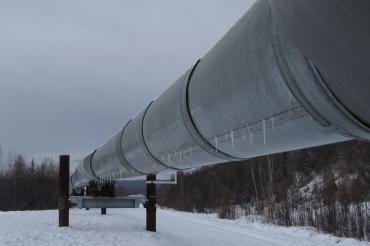Tackling environmental issues together: U of T engineering and public policy students address energy and pipeline policies

Published: February 27, 2017
Undergraduate students from U of T's Faculty of Applied Science & Engineering and the Faculty of Arts & Science's School of Public Policy and Governance are working together on a public policy assignment that has them briefing would-be decision-makers on challenging environmental issues, such as pipeline development and the proposed phase-out of coal-fired electricity plants.
The project, designed by fourth-year engineering science student Nathalin Moy, unites students currently enrolled in an energy policy class in engineering with an introduction to public policy course. Teams composed of three to four students from each class work together to formulate a response to a current energy policy issue. They prepare a two-page briefing note aimed at a hypothetical decision maker. The activity was piloted for the first time between Jan. 16 to Feb. 17.
“Communicating with government and members of the general public is a big part of my job,” says Andrew Knox, an engineering consultant and sessional instructor for the energy policy course. “I wanted to help our students get some practice, explaining technical issues to people without a technical background.”

Fourth year engineering student Nathalin Moy designed the program (photo by Tyler Irving)
Assistant Professor of Political Science Jonathan Craft says the project is also useful for his students.
“Like engineering, policy is a very interdisciplinary field, and it’s important for my students to get a sense of that,” he says. “Working with engineers offers the added benefit of exposing students to the technical constraints and realities of energy policy.”
Moy designed the activity as part of another course.
“It was challenging to develop an activity that would work for both engineers and non-engineers, but it’s exciting to see it in action,” she says. “And, I think the students are embracing it.”
The topics include:
- The Canadian government’s proposed phase-out of coal-fired power plants
- The proposed “Energy East” pipeline
- Hydroelectricity pricing in Ontario
- American climate policy under the new federal administration
- Climate change mitigation: the sinking island of Kiribati
In addition to the briefing note, which integrates both technical and policy considerations, students in both classes will be part of in-class debriefs on their experiences. By honing their abilities in cross-disciplinary collaboration, the project prepares the students for success in a wide variety of fields and careers.
“In my undergraduate work, and even in my graduate work, I was never required to work with students outside of technical disciplines,” says Knox. “I hope that other instructors will be inspired by this assignment and create a more cross-disciplinary and holistic educational framework.”
In addition to the new pilot project, U of T"s Faculty of Applied Science & Engineering leads a number of other cross-disciplinary collaborations in education and research, including:
- The Centre for Global Engineering course: An Interdisciplinary Approach to Addressing Global Challenges, is offered jointly by U of T Engineering, the Dalla Lana School of Public Health, the Munk School of Global Affairs and the Rotman School of Management.
- The Collaborative Program in Engineering Education, is offered jointly by U of T Engineering and the Ontario Institute for Studies in Education.
- The Translational Biology and Engineering Program brings together principal investigators from U of T Engineering with others from the Faculty of Medicine and the Faculty of Dentistry to focus on stem cell technologies, cellular and tissue engineering techniques, cell signaling, experimental platform development, and clinical research in heart regeneration.
- The Southern Ontario Centre for Atmospheric Aerosol Research is an interdisciplinary centre for the study of air quality, with a focus on how aerosols impact human health and the environment. It brings together principal investigators from U of T Engineering as well as the Faculty of Arts & Science and the Faculty of Medicine.



